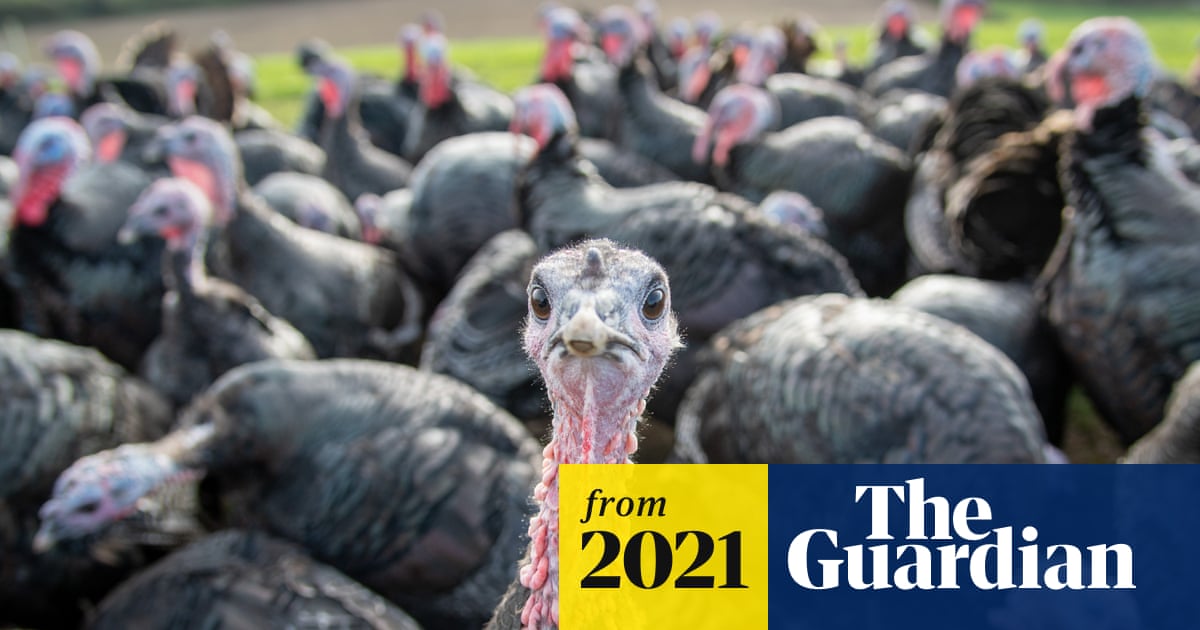In a field in Norfolk, the sight of lush green leaves sprouting from the soil are giving farmer Ed Lankfer cause for optimism. “I think this is one of the best crops we have ever grown,” he says, surveying one of his fields of sugar beet.
The signs are promising so far for this year’s harvest – known in the trade as a campaign – which takes place later than for other crops, during the autumn and winter. It would mark quite the turnaround from 2020’s terrible harvest, when bad weather and pests caused yields of the white sugar-yielding root to plummet by as much as 60%, leaving Lankfer with a £12,000 loss.
Sugar beet has been grown on Lankfer’s 225-hectare (556-acre) family farm in the village of Wereham since his grandfather first introduced it in 1928, alongside other crops. However, recent years of falling prices, coupled with risks from weather and disease, have many farmers questioning whether there is a future in growing it. This is before growers feel the impact of
post-Brexit trade deals with large sugar producers such as Australia. It’s a concern for Lankfer, whose land is in international trade secretary
Liz Truss’s constituency. He has twice hosted her at the farm to answer questions from growers.
...
Many consumers who drink fizzy drinks or eat sweet treats may not realise that beet farms located all over eastern England, across swathes of East Anglia up into Lincolnshire, produce enough to cover half of the UK’s annual sugar consumption of close to 2m tonnes. The remainder comes from overseas beet or cane, meaning any reduction in British output would increase reliance on imports.
Tate & Lyle, the food company which was a
prominent supporter of Brexit, only processes imported raw sugar cane, mostly from the tropics, which arrives by ship at its huge refinery beside the Thames in east London. Like the villain Voldemort in the Harry Potter books, some beet farmers refuse to mention the company by name, grumbling about how Tate & Lyle products are branded with a union jack by virtue of being processed and packaged, but not grown, in the UK. Imported raw sugar cane is often cheaper than British or European-produced beet, yet domestic sugar producers were protected by quotas and subsidies during the UK’s EU membership while tariffs restricted the amount of cane imported, which goes some way to explaining Tate & Lyle’s pro-Brexit stance.
...
One-year contract prices for sugar beet agreed between British Sugar and the NFU have been in steady decline for most of the last decade. Having peaked at just under £32 a tonne in 2014, the price has slumped by more than a third to hover at about £20 a tonne for the past few years. Farmers are still nursing losses from last year’s harvest, and feel there is an imbalance in power in their relationship with British Sugar, which reported a 17% rise in revenue and a pre-tax profit of almost £55m in the year to 29 August 2020, according to its most recent accounts.
Amid mounting pressures, some beet farmers are calling time on the crop. “Many growers are now talking about what they call beyond beet, and unfortunately we think with the new market dynamics, the industry will get smaller in future,” says Sly. James Peck, who runs Cambridgeshire-based PX Farms, was until recently the UK’s third-largest sugar beet grower. “We were heavily invested in it and we were committed, but the price went down, down, down,” he says.
...
British Sugar says it recognises that 2020 was challenging and it is offering NFU Sugar a minimum contract price of £25 a tonne in the current negotiations, representing a 23% increase on last year.
...
Even if beet prices improve, growers are fearful of the prospect of Australian sugar flooding the market as a result of the trade deal. Beet farmers feel they have been overlooked, but expect to be
affected just as much as sheep and cattle farmers, located predominantly in
Wales and
Scotland. “All the signs are that for sugar actually it’s a tighter transition [than for lamb and beef],” says Sly. He calculates that, under the deal as it stands, by the end of the transition period in 2030 “there will be an additional 240,000 tonnes of tariff-free sugar into the marketplace”, equivalent to a quarter of the UK’s domestic sugar production. After the transition period, there will be no limit to how much Australian sugar can be imported. Domestic growers feel unable to compete with the scale of Australian farms, where 30m tonnes of sugarcane were harvested in 2019-20, according to the Australian Bureau of Statistics. Sly points out that large sugar cane-producing nations also use certain pesticides that are
no longer allowed in Europe.
Back in Norfolk, Lankfer doesn’t plan to stop growing sugar beet, though his recent meeting with Truss only went some way to allaying his concerns. “She explains herself well, but after the meeting there were lots of ‘what ifs’. What if Australia falls out with China, and then Australia floods our market, which could happen with sugar?” Lankfer says. “My future is in her hands.”





